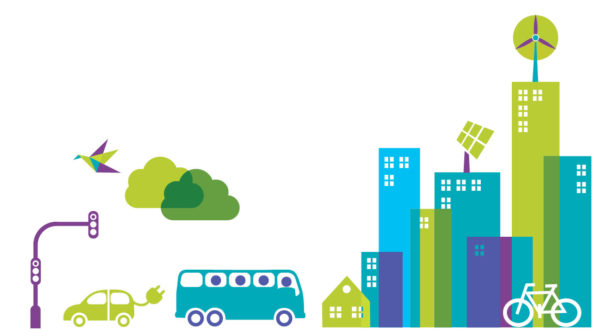 The Centre on Innovation and Energy Demand (CIED) sits at the forefront of research on the transition to a low carbon economy. We investigate new technologies and new ways of doing things that have the potential to transform the way we use energy and achieve substantial reductions in energy demand.
The Centre on Innovation and Energy Demand (CIED) sits at the forefront of research on the transition to a low carbon economy. We investigate new technologies and new ways of doing things that have the potential to transform the way we use energy and achieve substantial reductions in energy demand.
Our approach moves beyond an exclusive focus on technology and energy supply. We examine how new, low-energy innovations emerge and spread and how this process is shaped by market forces, government policy, social interactions and cultural norms. The innovations CIED examines include new technologies, new energy systems, novel business models and behaviours and combinations of all of these.
We understand that low-energy innovation does not happen in an “empty” world, but within the context of existing systems that may provide barriers and active resistance. Our research explores how innovations are adopted by people and organisations, how they become more widespread within societies and how different factors shape their impact on energy demand. We seek to use this knowledge to develop practical policy recommendations.
Our research is grouped under three themes:
Emergence
Emerging technologies, behaviours, institutional arrangements, and business models struggle to become established against more dominant systems. Space needs to be created for learning that leads to the development and improvement of new innovations. Our research looks at emerging innovations and uncovers the mechanisms and processes that provide the conditions for success.
Diffusion
Innovations spread when incentives, cultural values, infrastructures, research and policies support their diffusion and when they become aligned with people’s expectations and behaviours. Diffusion is driven by market mechanisms, but also by consumers, businesses, policy makers and civil society. We explore how the diffusion of low-energy innovations occurs, with the aim of gaining insights on how infrastructures, business models, social norms, values and public policies need to change for particular innovations to spread more widely.
Impact
It is difficult to estimate the historical or future impacts of low-energy innovations given the complexities of economic, institutional and social systems. The links between economic growth, energy efficiency improvements and energy consumption remain poorly understood. We use a variety of techniques to estimate the historical energy savings from low-energy innovations and to identify the mechanisms that shape those impacts. These methods help us to explore future energy savings and identify how they might be increased.
Our research is:
Interdisciplinary drawing on ideas from economics, history, innovation studies, sociology and urban geography.
Multi-method including qualitative and quantitative techniques ranging from historical and contemporary case studies, surveys, modelling and econometric analysis.
Practical and relevant because we investigate low-energy innovations relevant to transport, industry, households and non-domestic buildings, and work with stakeholders to better understand their adoption of low-energy innovations.